Speaking to Jeff Mills is not so much a conversation as it is a chance to tune into his passionate theories and philosophies about space, the future of the human race or the possibilities of techno as an art form.
Words by Kristan J. Caryl, Photo's by Bart Heemskerk, Ariel Martini, and Gabriel Quintão
It is this sort of thinking outside the usual lines that resonates with Dekmantel and makes Mills such a cherished and regular guest at the annual Amsterdam festival. His journey with Dekmantel started with an intimate, six-hour Sunday afternoon set back in 2012. After that, it is said that the main festival was all but started to accommodate Mills, and founder Thomas Martojo has told him “your music makes me feel like I'm a 15-year-old kid again.”
When we call, the phone line to his house in Miami is slightly muted and crackly so it’s easy to imagine he is in fact speaking from a far off planet, which he most certainly would be if it were at all possible. During the conversation, the ever-so-polite and softly spoken Mills doesn’t react to interjections or prompts until he is quite done with the subject he is talking about, and will let you know when that is by concluding, “so yeah,” or “that’s all I have to say about that.” He turned 56 on “a quiet evening” a week or so ago says the man whose elfin looks defies his age. “After so many birthdays you just let them pass you by,” he says before, as he often does, quickly turning the topic back to space.
In one momentary lapse, he does actually admit to watching cartoons, and despite being as serious in person as he is on stage and in the way he approaches techno, he does allow himself to laugh. Firstly, it's at the prospect of 80-year-old DJs “which will happen in our lifetime,” and then with the admission that he ended up in techno rather than jazz because “I didn't get a music scholarship.” Although he played drums all throughout his childhood—in concert bands, stage bands and marching bands—“the band director gave it to another guy. At that point I thought maybe percussion would be tough, I’ll just go to school and get a job, but then DJing became popular and I started playing records so that's how I moved on.”
The third and final laugh of the 75 minutes is a quiet one at his own suggestion that, "we should mix Comic-Con and techno parties together and see what happens. We should make parties more colourful, more shiny, more like we’re floating in space.
As someone who used to collect comics and animation, dressing up and role play has always been something Mills was interested in. For a while, he even used to run a clothes store called Gamma Player in Chicago with his wife. Unsurprisingly for a man as meticulous as Mills, it was a high end place that worked with designers to “buy and present very special pieces of clothing. To this day, when I travel, I know where to go to get very special things for very special occasions.”
Conventional wisdom says that DJs should be heard and not seen, especially those as highly regarded and academic as Mills. But he—rather unpredictably for a man who has done more than anyone else to elevate techno to a high art form through residencies at the Louvre in Paris, silent movie soundtracks and electronic-classic fusions alongside the Montpelier Philharmonic Orchestra—dismisses the idea that dressing up might be a gimmick or lack authenticity.
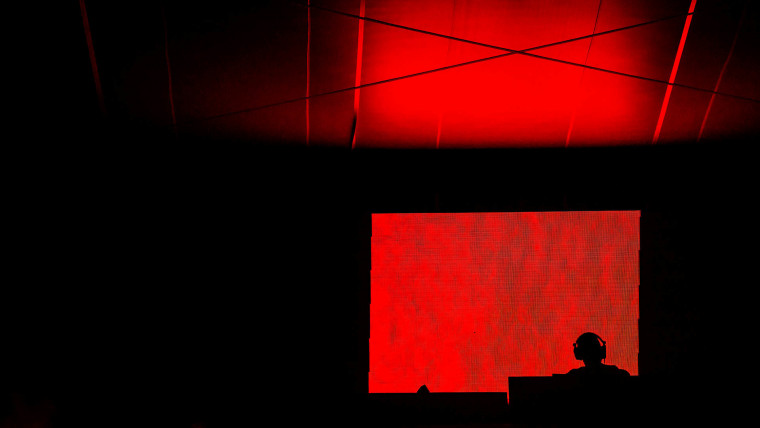
“Frankly, who cares what people think. DJs look too normal. To be in front of people and look like them or wear the same thing as they are wearing, I think that era came and passed. It maybe peaked with grunge where everybody wore the same thing. And that was OK, but what you’re wearing can relate to what you're doing and what the music sounds like.”
In his case, Mills is often dressed in all black or all white, with sleek fitted suits, sharply cut shirts and lush materials like velvet or more obvious space-garms that are metallic and reflective. He reckons that even if you catch him at home, on a Sunday, he won’t be dressed too differently.
“I have a natural attraction to things that shine,” he says. “I don't know if that’s an Afro-American thing or a sci-fi thing or related to movies, but a jump suit or space suit kind of points to where I'm trying to take people. It’s part of the performance and all connected. To look like you're just at the bus stop in front of people is OK, but I think that clothes are all part of the fantasy and escapism. It just makes sense to spend more time trying to paint the larger picture and help with peoples’ understanding of what I’m trying to say.”
The larger picture is something Mills is always fascinated with. Most of his projects these days are highly conceptual, from his adventurous The Outer Limits radio shows on NTS to his next album, Moon - The Area Of Influence, which is due out on July 20th, 50 years to the day since man landed on the moon. Despite the imagery, theory and in some cases written words that come with his projects, Mills is of the belief that his music must standalone and make sense without all that background information. “Intent and clarity is very important. People need to understand what you are saying.”
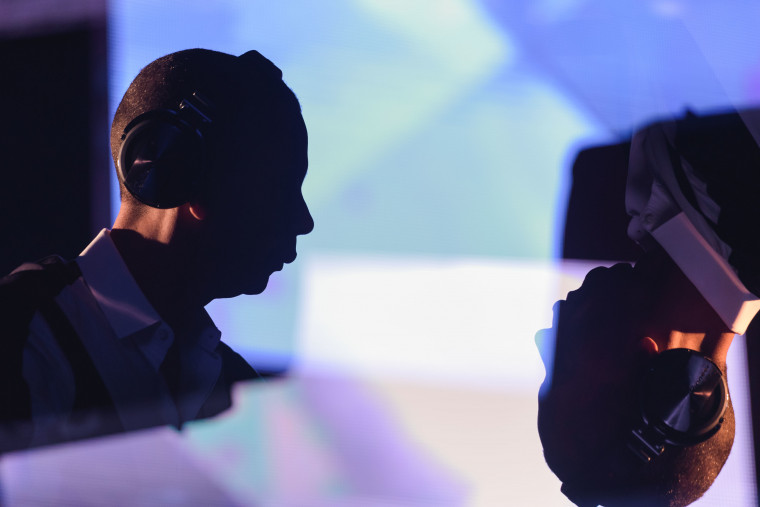
Because he appears to operate very much in his own world, you might think Mills is shut off from his audience. But the truth lies far from it, and in fact he bemoans the minimal era of 2006-2010 for being “too cliquey,” too centred around looking the same, doing the same drugs and around how many people could cram into the DJ booth.
“It was like the party was up there. But really it’s the people that are leading the conversation about what music is popular. There is a relationship between producer and dance floor - you have to find a way to be able to meet at a certain point and then step back and let nature work it out.”
Mindful of the fact that there will be many celebrations around the moon landing, Mills approached his forthcoming album from the perspective of “why the moon is so interesting to us and the planet and what it does to us.” Around this project, he has also been curating, editing and tweaking The Director’s Cut, a back catalogue re-issue project spread across six releases and one compilation. He sees it as a chance to perfect the music, and chose tracks “that I thought were missed by the public because of trends of the time” as well as those that he thinks he could finally realise as he intended as far back, in some cases, as 1988
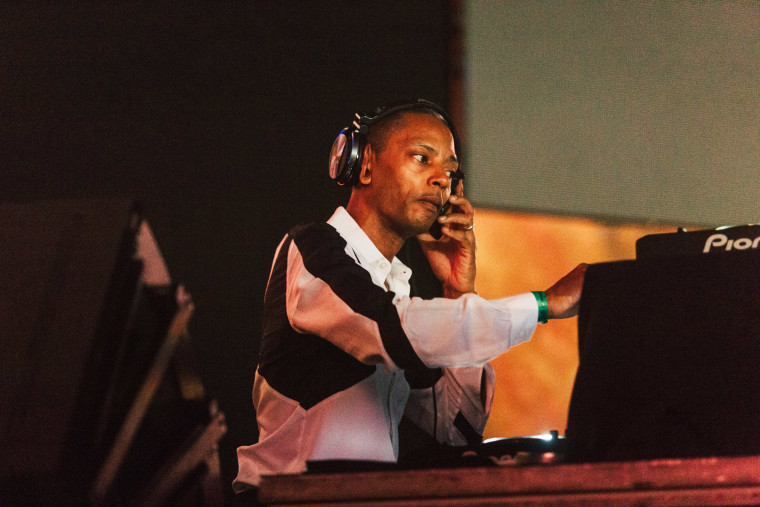
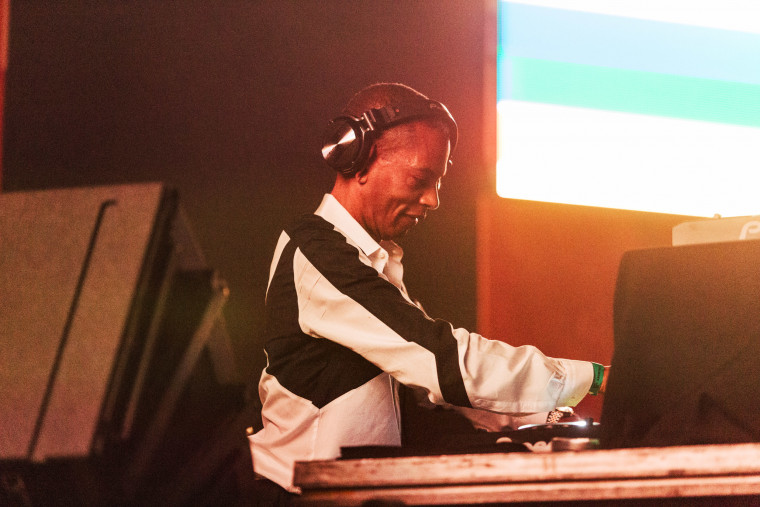
"While I'm looking back at the music I'm looking back in terms of time: how many presidents and wars, how much was accomplished in science, technology and space travel. Perhaps there may have been chances that were missed, different paths might have been taken. I think it's healthy. Being able to look back is very important. When you look back in terms of music you look in terms of era, trends, and what the popular mass was doing at the same time. You can see how lines were crossed, where there was separation, parallel thinking but not much contact between people and scenes and movements in music.”
Two nights before we speak, The Wizard was at the Kennedy Space Centre and saw the SpaceX Heavy Falcon—the world’s most powerful active rocket, stocked with a solar sail, an atomic clock and the ashes of 152 people—launch at 2am. He‘d been before but missions had always been scrubbed. “It was really incredible, it was beyond words actually,” he says, clearly still glowing from something he had dreamt of doing since being pulled out of class to watch the moon landing in the school auditorium all those years ago.
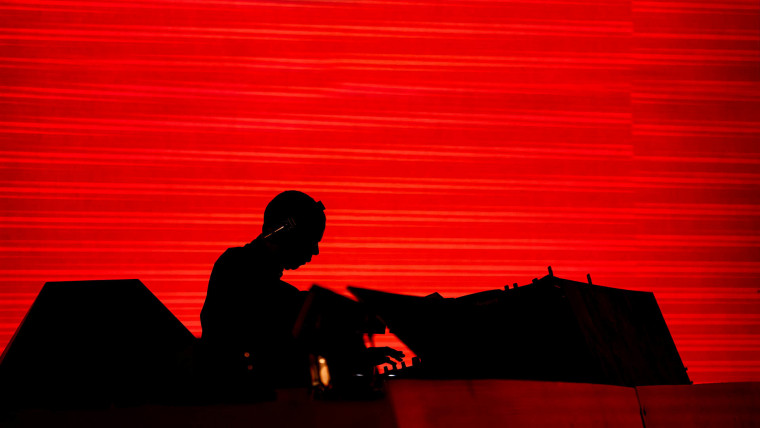
By now, young Mills imagined we would be rather further on in space than we are, but now thinks private investment and launches like this one show it is back on track. He views the billions spent on it are “part of the evolution of humanity” and important so that we “have a plan B before it’s too late here on earth. We must stay conscious about the state the planet is in because once we lose things that are irreparable, thinking about the consequences is quite tough.”
If we do end up colonising another planet, Mills believes techno could really help us. “The signs of how important dance music and the mentality of it can be perhaps haven't quite revealed themselves yet, but maybe in the future we will have to rely on some of the things we have learnt through techno—that we can come together in large numbers, and stay together in large numbers, without even knowing each other. Techno might allows us to imagine things—the principle ideas of escapism—and understand things that are far beyond us.”
As much as technology brings us together, it also divides us. Mob mentality causes social rifts, Facebook is a main window to the world that only serves to reinforce the beliefs you already have, while satellite TV means there is a niche news channel that caters to every and any different social or political position, with truth and objectivity often playing second fiddle to rhetoric and opinion.
“I use news as a barometer to see where people are headed and what they're thinking,” says Mills. “That affects my music: when I sit down to compose, I use these as an indication of how people are, how the planet is spinning, how we're evolving. But these days you have to have a filter. In my opinion it's better to sit and watch and not necessarily make a conclusion, but just listen to all the different sides. Taking things at face value is not a very good idea. That era is gone. We have to look at things not one, not twice, but three times, four times.”
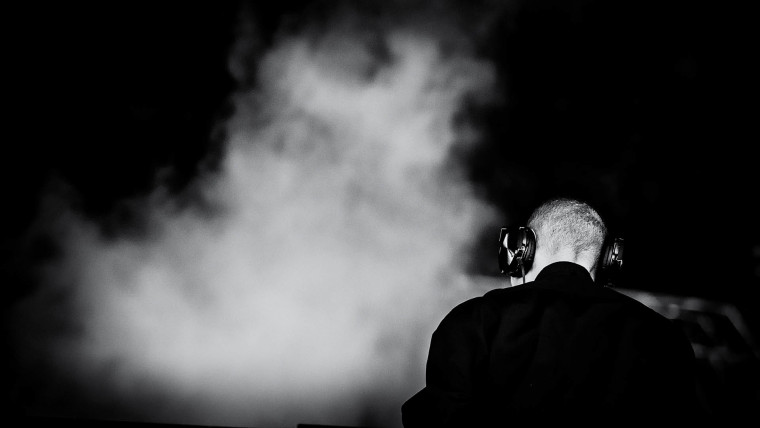
In his own work, Mills is certainly happy to explore the same themes and ideas from many different angles - be it hundreds of club-focussed techno releases, more than 20 film soundtracks, all-original radio shows, orchestral fusions or ambient explorations. He’s often said he wants techno to be more serious, but today the Detroit pioneer seems to take a slightly different position: after saying there is simple, commercial jazz that appeals to lots of people and the more complex free jazz end of the spectrum, he reckons you have the same in electronic music.
“There is something for everything. I'm not sad or disappointed that too many people like EDM or not enough people like my techno. The thing I like is that it doesn't apologise for what it is. Techno that was made because the producer stole something and wanted to translate it and describe something—it doesn't apologise. If you like it, great, if you don't, it has no bearing, it will still exist.”
As he advances in years, Mills says he would rather “land the plane than crash it,” which suggests he won’t carry on playing forever. But for at least another year, he will return to Dekmantel Festival this August and take up his now iconic closing slot on the Main Stage for the fourth time. The Main Stage is a place Mills makes perfect sense, with a crowd who will go anywhere with him and the vast visual screen that adds to the always mind blowing intensity of his drums. “When you can see in someone's eyes and see someone's face you have a connection,“ he says, “but with larger crowds it’s like looking at an ocean. I use my imagination and imagine what a person might want to hear, where they might want to go.”
He admits that after so many years playing so many shows, he has basically lost high frequencies from his left ear, and his eyesight is not what it was. “But as one thing tapers off, another will increase. I will find something to take up the slack for sure. I’m too deep in this to stop.”
As ever with Jeff Mills, that is music to our ears.
